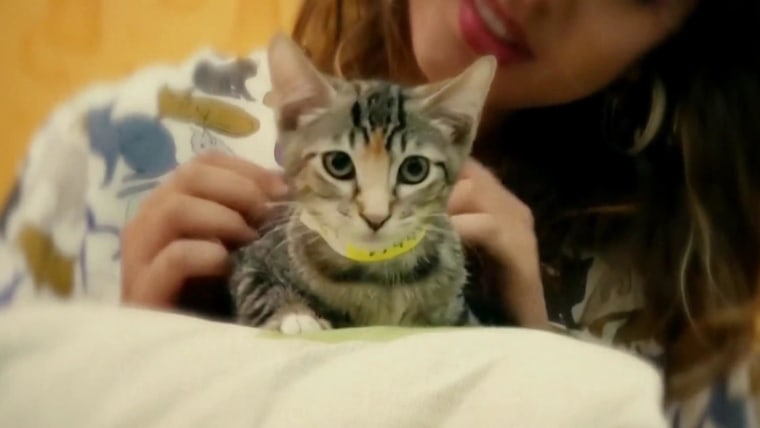Pug in North Carolina tests positive for coronavirus, may be first for dog in U.S.
A pug in North Carolina has tested positive for the coronavirus, which may be the the first such case for a dog in the U.S.
The dog, Winston, was part of a Duke University study in which a whole family in Chapel Hill, the McCleans, were tested for the virus.
The mother, father, son, and pug tested positive, while the daughter, another dog and a cat tested negative, according to NBC affiliate WRAL in Raleigh.
Dr. Chris Woods, the principal investigator for the Duke study, said Winston may be the first dog in the country to have a confirmed case of the virus.
Heather McLean, the mother and a professor of pediatrics at Duke University School of Medicine, told WRAL that Winston has had mild symptoms.
Full coverage of the coronavirus outbreak
“Pugs are a little unusual in that they cough and sneeze in a very strange way,” she said. “So it almost seems like he was gagging, and there was one day when he didn’t want to eat his breakfast, and if you know pugs, you know they love to eat, so that seemed very unusual.”
Ben McLean, the son, said it made sense the dog got the virus because the pet “licks all of our dinner plates and sleeps in my mom’s bed.”
At least 2 cats test positive for coronavirus: What does it mean for your pets?
APRIL 23, 202002:36
While Winston may be the first dog in the U.S. known to test positive for the virus, a dog in Hong Kong with coronavirus died in March, although the cause of death for the 17-year-old pet was unclear as the owner refused an autopsy.
CDC guidelines on pets say “there is no evidence that animals play a significant role in spreading the virus that causes COVID-19,” but recommends you treat them “as you would other human family members.”
Download the NBC News app for full coverage of the coronavirus outbreak
“Do not let pets interact with people or animals outside the household,” the center says. “If a person inside the household becomes sick, isolate that person from everyone else, including pets.”
Heather McClean said she hopes the study will shed more light on how animals fare if exposed to the coronavirus.
“I think because there’s not a lot of studies and sampling of pets, we just don’t know yet,” she said. “My advice is just not to get too worried about it.”
Originally Published on MSNBC

